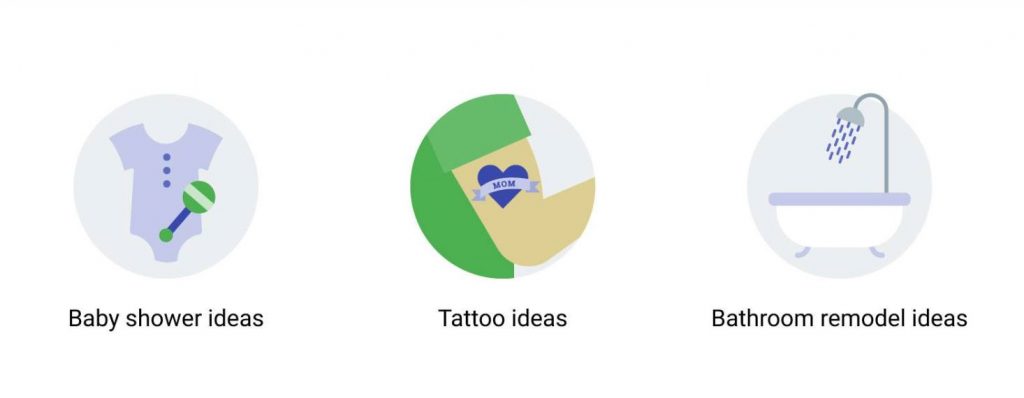While people are still searching for specific products, they are increasingly turning to search before they’ve even figured out what to buy. More and more, they’re looking for ideas and inspiration.
To better understand the changes in how people search, our Ads Research and Insights team has been digging into Google's search data. And to understand what the data is telling them about today's consumer, they're talking to people about the “why” behind the data.
I talked to Google’s Ads Research and Insights Group Marketing Manager Sara Kleinberg to discuss some of the findings that her team’s research has turned up.
What’s one thing that has jumped out at you recently?
Sara Kleinberg: People are using search to look for ideas. And by that, I mean they’re actually using the word “ideas” in search. A lot. “Valentine’s Day ideas,” “Baby shower ideas,” “Groomsman gift ideas.” A lot of occasions and events. And we’re seeing this across nearly all topics: things like “tattoo ideas,” “bathroom remodel ideas,” and “hair color ideas.”

How else is this search for ideas manifesting itself?
People come to search when they know they want something, but don't know exactly where to start or exactly what they need. One way this is manifesting is people are searching for pre-set shopping lists or checklists. They know someone has already gone through the decision making process. So instead of starting from scratch to plan every facet of that upcoming BBQ, for example, they search for a “BBQ shopping list.”
Another example is to figure out what to wear. It’s kind of crazy. People are searching for outfit ideas. “Outfits for” fill in the blank. “Outfits for school,” “cute outfits,” “interview outfits,” “matching outfits for couples.”
Or they have a specific need—for instance, they need to buy a gift for their 10-year-old nephew—but haven’t made a purchase like that before or, don’t have kids that age. So we’re seeing searches for things like “gift ideas for a 10 year old.”
So what’s driving this?
People have a problem they’re trying to solve—they want to look polished at their interview or throw the neighborhood’s best BBQ—and often don’t know where to start. They want to cast a wide net to take in all the information out there so they know they’re not missing out on anything before narrowing down their options.
People also told us that they’re always on the lookout for things they want or need, always browsing for ideas. It’s fun. Some consider it learning instead of shopping.
Does this shift have anything to do with more and more search moving to mobile?
Yes. The always-there nature of mobile enables us to act right in the moment that an idea pops into our heads. So if you see something in the store that you want to learn more about, you can pull out your phone right there. Or if you have a passing thought, you can casually explore the idea right when it comes to mind instead of hoping you still remember what it was by the time you get home.
What should marketers do with this information?
By understanding how people are searching for ideas, brands have an opportunity to get into their consideration set. Brands can think of all the open-ended discovery moments where someone is totally open to what is out there and make themselves visible and differentiated. A number of brands are already doing this well. Bed Bath & Beyond and other retailers have curated shopping lists and checklists that bring people onto their site. It’s a good example of how brands are noticing these signals.
At this ideas and inspiration stage of discovery, people are looking for help—and savvy marketers can put their brands at the center of this opportunity.

